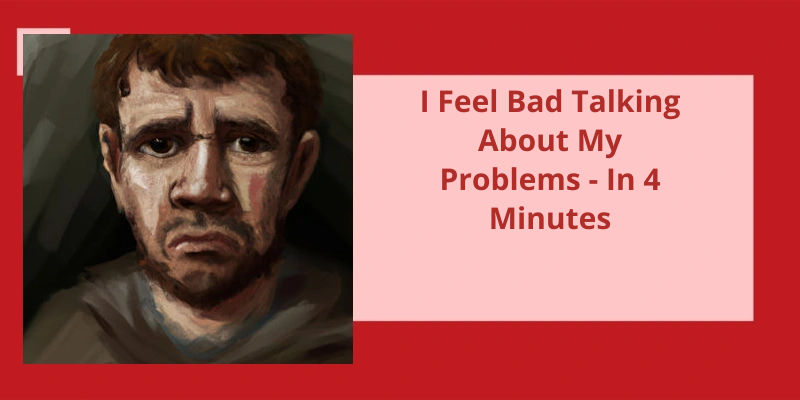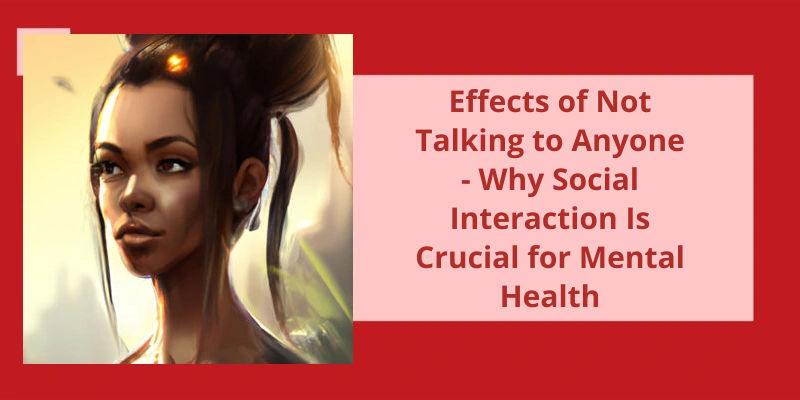Do I feel guilty when I talk about my problems and, if so, why?
Opening up to someone can be a difficult and daunting task, especially if you have had bad experiences in the past. It is natural to feel guilty when you do something you know you shouldnt be doing, and this guilt can be a powerful deterrent to opening up.
Opening up to someone can be a difficult and rewarding experience. It is important to remember that feeling guilty is a natural response to doing something we know we shouldnt be doing. However, it is important to recognize that opening up can be beneficial and can lead to positive experiences. It is important to be mindful of our feelings and to take the time to process our emotions before making any decisions.
How does discussing my issues cause me to feel worse?
when faced with others who talk more, it can be difficult to feel in control of the conversation. We may be afraid to bring up issues or express our feelings, as we fear it may cause more problems or lead to people leaving us. It is important to remember that communication is key to any successful relationship and that it is okay to express our feelings.
When faced with others who talk more, it can be intimidating and make us feel vulnerable. We may be afraid to discuss issues or express our feelings, as we fear it may cause more problems or lead to people leaving us. It is important to remember that communication is essential to any successful relationship and that it is okay to express our feelings. By doing so, we can build stronger relationships and create a safe space for open dialogue.
I feel embarrassed to discuss my emotions; why is that?
It is important to recognize that when we feel embarrassed or ashamed of our feelings, it is often because we have been conditioned to do so. We must strive to create an environment where children can express their feelings without fear of judgement or punishment. This will help them to develop healthy emotional regulation skills and foster a sense of self-acceptance.
Embarrassment and shame can be powerful forces that can shape our behavior and our sense of self. It is essential that we create an environment where children can feel safe to express their feelings without fear of judgement or punishment. This will help them to develop healthy emotional regulation skills and foster a sense of self-acceptance.
I struggle to express my emotions verbally.
It is understandable that some experiences can be too painful or traumatic to talk about. It is important to remember that it is okay to not want to share your story and feelings with others. Everyone has the right to keep their experiences to themselves if they choose to do so.
Experiences that are too painful or traumatic to talk about can be difficult to share. It is important to remember that it is okay to not want to share your story and feelings with others. Everyone has the right to keep their experiences to themselves if they choose to do so. It is important to take the time to process and heal from these experiences in whatever way works best for you.
It is difficult for me to discuss my trauma.
The fear of invalidation, judgment, victim-blaming, not being believed, and reliving the details are all common reasons why sharing a trauma can be difficult. It is important to recognize these fears and to create a safe and supportive environment for those who have experienced trauma to share their stories. By providing a safe space for survivors to share their stories, we can help them to heal and move forward.
Sharing a trauma can be a difficult and daunting task, but it is an important part of the healing process. It is important to create a safe and supportive environment for survivors to share their stories without fear of judgment or invalidation. By providing a safe space for survivors to share their stories, we can help them to heal and move forward.
What can I do to no longer feel ashamed of my emotions?
Finding the cause of your shame is an important step in moving forward. Practicing mindfulness, recognizing when youre feeling shame, and seeking support are all helpful tools to help you become aware of your thoughts and have compassion for yourself. Everyone makes mistakes, and its important to remember that you are not alone in your struggles.
Shame can be a difficult emotion to process, but it is possible to move forward. Becoming aware of how you talk to yourself and having compassion for yourself are key steps in finding the cause of your shame. Additionally, practicing mindfulness, recognizing when youre feeling shame, and seeking support can help you to better understand your thoughts and feelings. Everyone has flaws and makes mistakes, and its important to remember that you are not alone in your struggles.
If you don’t talk about your trauma, what will be the outcome?
It is clear that trauma can have a significant impact on mental health, and it is important to address and acknowledge it in order to prevent further decline. Anxiety, depression, and PTSD can be difficult to talk about, but it is essential to do so in order to ensure that mental health is maintained.
Trauma can have a devastating effect on mental health, and it is important to recognize and address it in order to prevent further decline. Anxiety, depression, and PTSD can be difficult to talk about, but it is essential to do so in order to ensure that mental health is maintained. Talking about trauma is the first step to healing and improving mental health.
Does discussing trauma have a beneficial or detrimental effect?
Talking about personal trauma can be a difficult and painful process, but it is an important step in the healing process. It is important to remember that although it can be difficult, it is possible to heal from PTSD.
It is understandable to feel overwhelmed when talking about personal trauma, but it is important to remember that it is possible to heal from PTSD. Talking about traumatic experiences can be difficult, but it is an important step in the healing process.
Conclusion
I have come to realize that talking about my problems is a healthy way to cope with them. It helps me to gain perspective and to find solutions. It also helps me to feel less alone and to connect with others who may be going through similar experiences. I am grateful for the people in my life who are willing to listen and offer support. I am also thankful for the courage I have found to talk about my problems and to take steps to address them.






